|
Books Should Be Free Loyal Books Free Public Domain Audiobooks & eBook Downloads |
|
|
Books Should Be Free Loyal Books Free Public Domain Audiobooks & eBook Downloads |
|
Top Authors |
|---|
|
Book type:
Sort by:
|
By: Hilaire Belloc | |
|---|---|
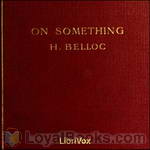 On Something
On Something
“Now that story is a symbol, and tells the truth. We see some one thing in this world, and suddenly it becomes particular and sacramental; a woman and a child, a man at evening, a troop of soldiers; we hear notes of music, we smell the smell that went with a passed time, or we discover after the long night a shaft of light upon the tops of the hills at morning: there is a resurrection, and we are refreshed and renewed.” – Hilaire Belloc | |
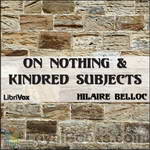 On Nothing & Kindred Subjects
On Nothing & Kindred Subjects
“I knew a man once, Maurice, who was at Oxford for three years, and after that went down with no degree. At College, while his friends were seeking for Truth in funny brown German Philosophies, Sham Religions, stinking bottles and identical equations, he was lying on his back in Eynsham meadows thinking of Nothing, and got the Truth by this parallel road of his much more quickly than did they by theirs; for the asses are still seeking, mildly disputing, and, in a cultivated manner, following the... | |
 This, That, and the Other
This, That, and the Other
“When Fame comes upon a man well before death then must he most particularly beware of it, for is it then most dangerous. Neither must he, having achieved it, relax effort nor (a much greater peril) think he has done his work because some Fame now attaches thereto.” -- Hilaire Belloc | |
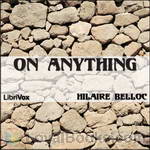 On Anything
On Anything
"Long before I knew that the speech of men was misused by them and that they lied in the hearing of the gods perpetually in those early days through which all men have passed, during which one believes what one is told, an old and crusty woman of great wealth, to whom I was describing what I intended to do with life (which in those days seemed to me of infinite duration), said to me, ( You are building castles in Spain.' I was too much in awe of this woman not on account of the wealth, but on account... | |
 The Free Press
The Free Press
I propose to discuss in what follows the evil of the great modern Capitalist Press, its function in vitiating and misinforming opinion and in putting power into ignoble hands; its correction by the formation of small independent organs, and the probably increasing effect of these last. (Introduction by Hilaire Belloc) | |
By: Ida Laura Pfeiffer | |
|---|---|
 A Visit to the Holy Land, Egypt, and Italy
A Visit to the Holy Land, Egypt, and Italy
Ida Pfeiffer travelled alone in an era when women didn’t travel. She went first on a pilgrimage to the Holy Land, then went on to Egypt and Italy. Understanding the difficulties a woman would face travelling alone and on a budget, she made a will before she left. Go she did, however; and upon her return she wrote this book. She used the proceeds to finance her next trip – six months in Iceland. | |
By: Lieh-Tzu | |
|---|---|
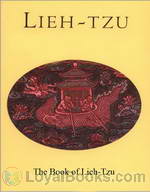 The Book of Lieh-Tzü
The Book of Lieh-Tzü
The Liezi (Chinese: 列子; pinyin: Lièzĭ; Wade-Giles: Lieh Tzu; literally “[Book of] Master Lie”) is a Daoist text attributed to Lie Yukou, a circa 5th century BCE Hundred Schools of Thought philosopher, but Chinese and Western scholars believe it was compiled around the 4th century CE. During the reign of Emperor Xuanzong of Tang, the Liezi was designated a Daoist classic, completing the trilogy with the more famous Daodejing and Zhuangzi. The Liezi is generally considered to be the most practical of the major Daoist works, compared to the philosophical writings of Laozi and the poetic narrative of Zhuangzi... | |
By: L. Frank Baum (1856-1919) | |
|---|---|
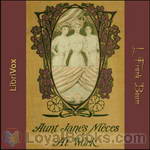 Aunt Jane's Nieces at Work
Aunt Jane's Nieces at Work
The novel carries forward the continuing story of the three cousins Louise Merrick, Beth De Graf, and Patsy Doyle, and their circle. The title is somewhat misleading; it could more accurately have been called Aunt Jane's Nieces in Politics. (Uncle John Merrick tells his nieces that politics is "work," which yields the title.)The story begins three days after the end of the previous book, Aunt Jane's Nieces at Millville; the freckled and red-haired Patsy still sports a sunburn from her summer in the Adirondacks... | |
 Aunt Jane's Nieces Out West
Aunt Jane's Nieces Out West
After visiting Louise, Arthur and Toodlums at their ranch in Southern California, Beth and Patsy, together with Uncle John, decide to spend the winter at an hotel in the little village of Hollywood, where they get drawn into the new motion picture industry. New friends, adventures and mysteries await. | |
 Aunt Jane's Nieces In The Red Cross
Aunt Jane's Nieces In The Red Cross
The 10th and final book in the series for adolescent girls sees two of the three cousins react to atrocities in World War I by volunteering in the Red Cross. Written under the pseudonym of Edith Van Dyne, this is the 1915 version, which reflects United States' neutrality. A later version, published in 1918, differed significantly to reflect changes in the position of the United States. | |
 Policeman Bluejay
Policeman Bluejay
This is another "TWINKLE TALE" from Mr. Baum (written under the pen name Laura Bancroft) and celebrates the further adventures of Twinkle and Chubbins as they magically become child-larks and live the exciting, and often dangerous, life of birds in the forest. | |
 Aunt Jane's Nieces In Society
Aunt Jane's Nieces In Society
Written under pseudonym of Edith Van Dyne. The story continues the adventures of three cousins, Louise, Patsy and Beth,with their debuts in society and the appearance of suitors, one of whom is rejected and kidnaps Louise. | |
 Aunt Jane's Nieces On The Ranch
Aunt Jane's Nieces On The Ranch
Aunt Jane's Nieces On The Ranch sees the reappearance of Louise and Arthur Weldon after the birth of their first child, Jane. The family lives in California and hire a nurse, a local Mexican woman, much to Uncle John's disapproval. Racial tension is explored as a New York woman is brought in to care for the child. Meanwhile, the Mexican nurse, Inez, is certain the ranch is haunted. | |
 Aunt Jane's Nieces And Uncle John
Aunt Jane's Nieces And Uncle John
Aunt Jane's Nieces and Uncle John picks up the continuing story of the three cousins Patsy Doyle, Beth De Graf, and Louise Merrick, and their family; the plot of the book begins three days after the wedding of Louise and her fiancé Arthur Weldon, the event that concluded the sixth book in the series, Aunt Jane's Nieces in Society. Uncle John hires a touring car and the party makes a tour of the South West, visiting New Mexico and Arizona. | |
 Aunt Jane's Nieces on Vacation
Aunt Jane's Nieces on Vacation
Aunt Jane's Nieces on Vacation is a juvenile novel for girls, written by L. Frank Baum. It is the seventh in the ten volumes in the Aunt Jane's Nieces series, and carries forward the continuing story of the three cousins Lousie Merrick Weldon, Patsy Doyle, and Elizabeth De Graf. Like all the books in the series, it was issued under Baum's "Edith Van Dyne" pseudonym. | |
By: Robert Green Ingersoll (1833-1899) | |
|---|---|
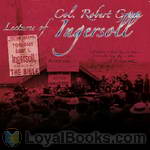 Lectures of Col. R. G. Ingersoll
Lectures of Col. R. G. Ingersoll
Colonel Robert Green Ingersoll (1833–1899) was a Civil War veteran, American political leader and orator during the Golden Age of Freethought, noted for his defense of atheism. This book is the first of two volumes collecting Ingersoll’s speeches. | |
By: E. E. Smith (1895-1965) | |
|---|---|
 Spacehounds of IPC
Spacehounds of IPC
When the Inter-Planetary Corporation's (IPC) crack liner “IPV Arcturus” took off on a routine flight to Mars, it turned out to be the beginning of a unexpected and long voyage. There had been too many reports of errors in ship's flight positions from the Check Stations and brilliant physicist Dr. Percival (“Steve”) Stevens is aboard the Arcturus on a fact-finding mission to find out what's really happening, and hopefully save the honor of the brave pilots of the space-liner Arcturus from the desk-jockeys' in the Check Stations implications of imprecision - the nastiest insult you could cast at a ships pilot... | |
 Skylark Three
Skylark Three
This is a sequel to The Skylark of Space. The novel concerns Richard Seaton and his allies who have encounters with aliens while fighting DuQuesne and the Fenachrone.. | |
 The Skylark of Space
The Skylark of Space
The Skylark of Space is one of the earliest novels of interstellar travel and is considered a classic of pulp science fiction. Originally serialized in 1928 in the magazine Amazing Stories it is often categorized as the first literary space opera, complete with protagonists perfect in mind, body, and spirit, who fight against villains of absolute evil. | |
By: R. Austin Freeman (1862-1943) | |
|---|---|
 The Eye of Osiris
The Eye of Osiris
The Eye of Osiris is an early example from the Dr. Thorndyke series of detective stories written by R. Austin Freeman. In these stories, the author drew on his extensive medical and scientific knowledge for his main character, a medico-legal expert who relies on forensic evidence and logical deduction in solving cases. In this case, Thorndyke steps in to investigate the disappearance of one John Bellingham, an English gentleman and amateur Egyptologist, who has vanished under very mysterious circumstances... | |
 The Mystery of 31 New Inn
The Mystery of 31 New Inn
Jeffrey Blackmore suspiciously made two wills, both deceptively alike, but still, in a cunning way, completely different. John Thorndyke, equally cunning and smart, smells something fishy. With stylish cool and logic, he leads the story up to its marvelous and fully credible climax. | |
 The Red Thumb Mark
The Red Thumb Mark
Missing diamonds, untouched safe, two blood smeared thumb prints and a mysterious Mr X. If these are present, Dr Thorndyke must be there too. Will he be able to solve this case?The Red Thumb Mark is the first novel of Freeman’s best-selling Thorndyke series. | |
 The Uttermost Farthing
The Uttermost Farthing
Humphrey Challoner is a solitary old man who spent a lifetime collecting for his private museum, primarily mammals exhibiting osteological abnormalities but also 24 articulated human skeletons without any apparent defect. His friend, Dr. Wharton, is puzzled by the collection, but he humors Challoner's eccentricities and tends to him in his final illness. When Wharton inherits the collection on Challoner's death, the dark mystery that ties the collection together is finally revealed. | |
By: Bret Harte (1837-1902) | |
|---|---|
 Selected Stories
Selected Stories
Bret Harte (1837–1902) was an American author and poet, best remembered for his accounts of pioneering life in California. | |
 Mrs. Skagg's Husbands and Other Stories
Mrs. Skagg's Husbands and Other Stories
A collection of short stories set in the American West at the end of the 19th century. | |
 What the Wolf Really Said to Little Red Riding Hood
What the Wolf Really Said to Little Red Riding Hood
Francis Bret Harte was an American author and poet, best remembered for his short fiction featuring miners, gamblers, and other romantic figures of the California Gold Rush. In a career spanning more than four decades, he wrote poetry, fiction, plays, lectures, book reviews, editorials, and magazine sketches in addition to fiction. As he moved from California to the eastern U.S. to Europe, he incorporated new subjects and characters into his stories, but his Gold Rush tales have been most often reprinted, adapted, and admired. | |
By: William Harrison Ainsworth (1805-1882) | |
|---|---|
 Rookwood
Rookwood
A rich and complex Gothic-Romance centring on the murky deeds of an ancient family. It is a wonderfully atmospheric piece that combines narrative, poetry, song, and descriptive writing to great effect. The character of Dick Turpin that we know today – the dashing highwaymen and unmatched horseman – can be said to stem directly from this novel, as the most famous part of the book (often published on its own in the past), Turpin’s Ride To York, is devoted to him. Although seemingly little known to a modern audience, Ainsworth’s ‘Rookwood’ gave the world the image of the highwayman with which we are all so familiar. | |
 Windsor Castle, Book 1
Windsor Castle, Book 1
Book 1 - Ann Boleyn. The focus of the novels is on the events surrounding Henry VIII's replacing Catherine of Aragon with Anne Boleyn as his wife. During Henry's pursuit of Boleyn, the novel describes other couples, including the Earl of Surrey and Lady Elizabeth Fitzgerald, a match Henry does not support. However, some of the individuals oppose Henry and his desires for Boleyn, including Thomas Wyat who wants her for himself and Cardinal Wolsey, who uses his own daughter, Mabel Lyndwood, to lure Henry away from Boleyn... | |
By: Samuel Butler (1835-1902) | |
|---|---|
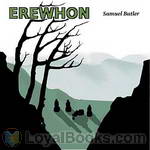 Erewhon
Erewhon
Erewhon, or Over the Range is a novel by Samuel Butler, published anonymously in 1872. The title is also the name of a country, supposedly discovered by the protagonist. In the novel, it is not revealed in which part of the world Erewhon is, but it is clear that it is a fictional country. Butler meant the title to be read as the word Nowhere backwards, even though the letters “h” and “w” are transposed. It is likely that he did this to protect himself from accusations of being unpatriotic, although Erewhon is obviously a satire of Victorian society. | |
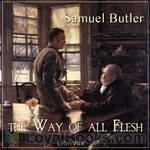 The Way of All Flesh
The Way of All Flesh
The Way of All Flesh (1903) is a semi-autobiographical novel by Samuel Butler which attacks Victorian-era hypocrisy. Written between 1873 and 1884, it traces four generations of the Pontifex family. It represents the diminishment of religious outlook from a Calvinistic approach, which is presented as harsh. Butler dared not publish it during his lifetime, but when it was published it was accepted as part of the general revulsion against Victorianism. | |
By: William McGonagall (1825-1902) | |
|---|---|
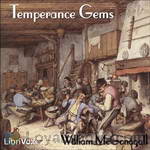 Temperance Gems
Temperance Gems
Good people all, of every degree,I pray, ye all be warned by me:I advise ye all to pause and think,And never more to taste strong drink. Some people do say it is good when taken in moderation,But, when taken to excess, it leads to tribulation,Also to starvation and loss of reputation,Likewise your eternal soul’s damnation. McGonagall has been widely acclaimed as the worst poet in British history. He campaigned vigorously against excessive drinking, appearing in pubs and bars to give edifying poems and speeches... | |
By: Richard D. Blackmore | |
|---|---|
 Lorna Doone, a Romance of Exmoor
Lorna Doone, a Romance of Exmoor
“If anybody cares to read a simple tale told simply” … thus opens Lorna Doone, one of the best love stories ever written. The novel has inspired at least ten movies and mini-series. “John (in West Country dialect this is pronounced Jan) Ridd is the son of a respectable farmer who was murdered in cold blood by a member of the notorious Doone clan, a once-noble family now living in the isolated Doone Valley. Battling his desire for revenge, John also grows into a respectable farmer and continues to take good care of his mother and two sisters... | |